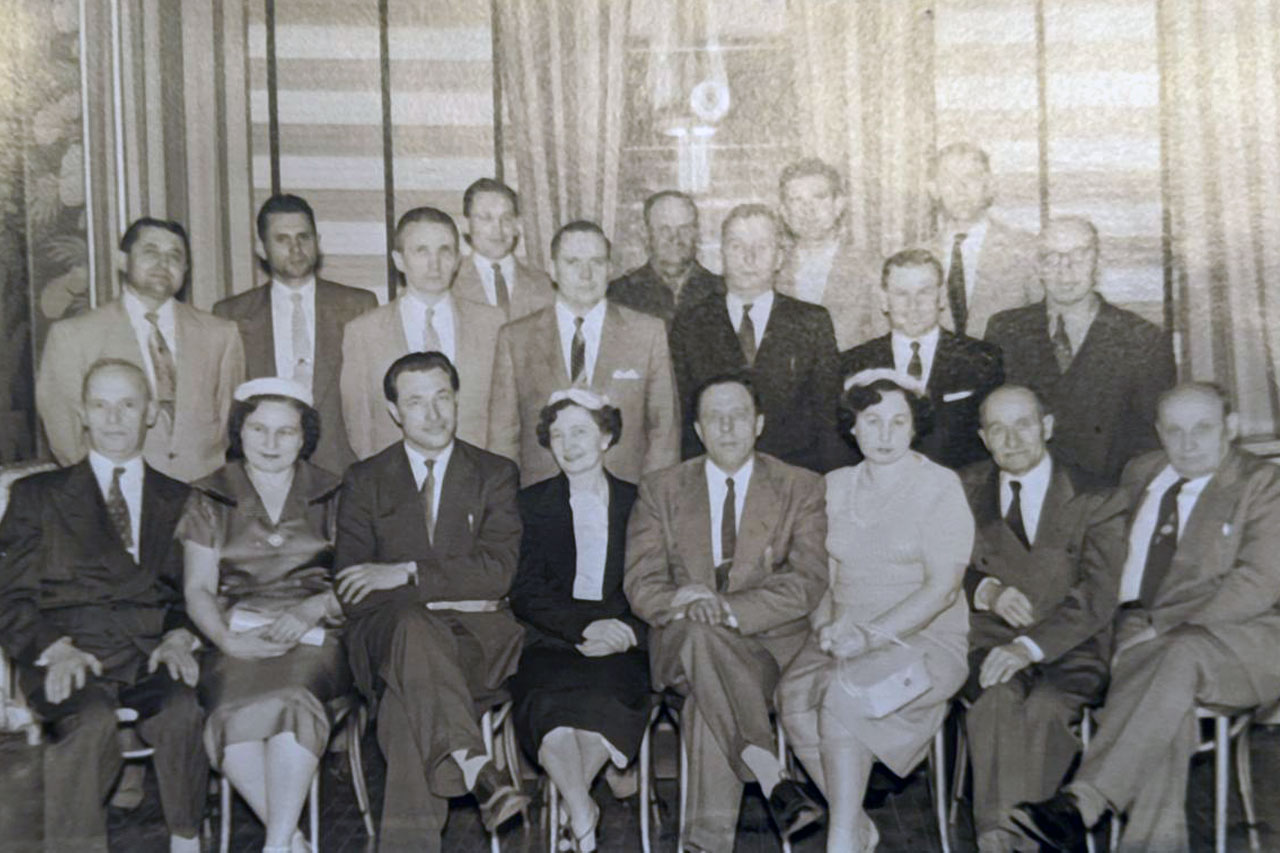PJHR Partners with BAZA South Florida to Host the Belarusian Asylum Seekers Conference
Friday, Feb 10, 2023
PJHR was the second main sponsor of the conference, “ 'fugees from Belarus: Before and Now," which took place on January 15, 2023 in Sunny Isles, FL.
PJHR Affiliate Dr. Palina Prysmakova brought together these organizations to celebrate the 10 th anniversary of South Florida Chapter of Belarusian-American Association (BAZA), an organization created by Belarusian asylum seekers from Stalin’s repression in New York in the 1950s. Since then, the organization has expanded to various states and - with the recent waves of repression by Russia's Vladimir Putin and Belarusian leader Alexander Lukasheko - to Florida.
Over 100 people participated in the event. They included current asylum seekers, family members of survivors, and members of the general public who stand in solidarity with the Belarusian nation.
The official ceremony had an educational character and consisted of a presentation by the asylum seekers of 1950s and their family members (e.g., Vyachka Stankevich and Natallia Rusak), who described their childhood experiences and shared some historic photos. It also included the honorable leaders of the main Belarusian diaspora organizations of the United States and Canada, who spoke about the asylum seekers’ lives within their communities today (see full program below).
A concert of traditional Belarusian winter holidays music performed by Siarzhuk Doulgushau, a collector and a preserver of the traditional Belarusian preforming folk art, added an atmosphere of cheer. Due to his activism on behalf of the Belarusian nation, he has been banned in Belarus by the current regime on multiple occasions. Despite that, Siarzuk continues to share Belarusian art and expands it with the help of his multiple followers.

History of Repression in Belarus from Joseph Stalin to Alexander Lukashenko:
The wave of 1950s Belarusian asylum seekers to the United States consisted mostly of Belarusians from Western part of their motherland. That part of the country was part of Poland until World War II. It thus avoided the collectivization and expropriation of private properties within the Soviet Union, as well as the most horrible waves of Stalin's repression in the 1930s. However, the 1930s-era Soviet repression catastrophically affected the eastern part of Belarus and caused massive deaths of the local population. Many of those who survived were forcefully exiled to Siberia by Stalin's regime.
Damaged and exhausted by World War II, the western Belarusians had to continue to fight for their personal dignity and human rights, even after the official proclamation of Germany’s defeat in May 1945. Many were displaced during the war to Western Europe. After the end of the war, they refused to go back to their homes in western Belarus, which was now placed under Soviet administration, for fear that Stalin’s repression would now expand to western Belarus.
Displaced Belarusians mainly stayed in Belgium, the United Kingdom, and the northeast coast of the United States. Throughout their lives, they patiently waited the collapse of the Soviet regime so that they could return home. Most of them died before the Soviet Union collapsed in December 1991. Yet their children who came with them in 1950s or who were born in the United States carried on the history of Belarus and its people. This history was never presented in the official history textbooks of Soviet Belarus. The current Republic of Belarus system of education has also omitted telling this history, as the country became occupied by the illegitimate, pro-Russian, and pro-imperialist regime of Alexander Lukashenko soon after it proclaimed its liberation from the Soviet chains.
The new wave of repression by Lukashenko's authoritarian regime has resulted in asylum seekers arriving in the United States at an especially fast pace for the last two years. Massive protests and mass arrests (more than 45,000 people) have been taking place in Belarus since Lukashenko was inaugurated for his sixth term as president after the 2020 election, which many Belarusians believe was fraudulent. His regime has incarcerated Belarusian citizens for exercising basic human rights, like gathering and the peaceful expression of opinion, and the number of people affected is getting close to 5,000 criminal sentences.
The rhetoric of the new generation of Belarusian asylum seekers is the same as that of the asylum seekers of the 1950s: "to wait till it's all over, so that we can go back home."